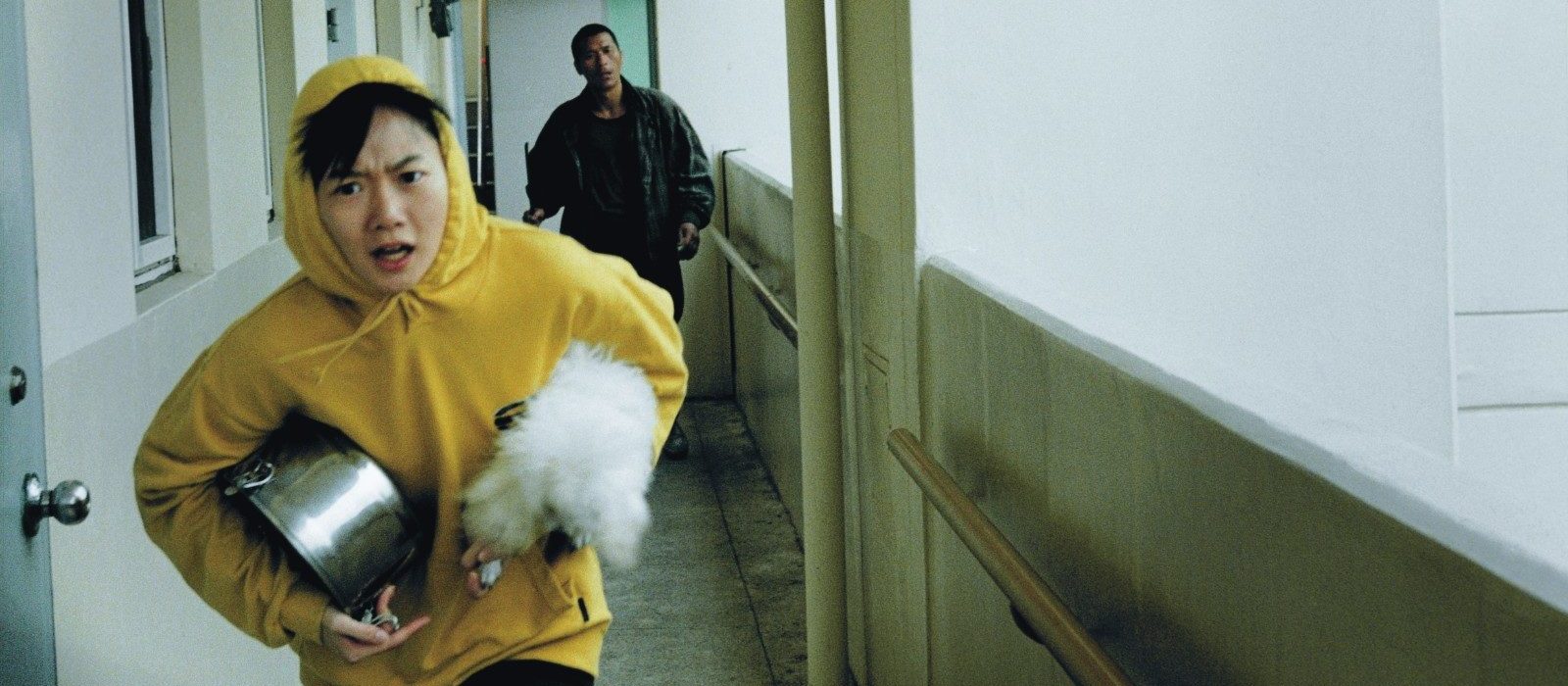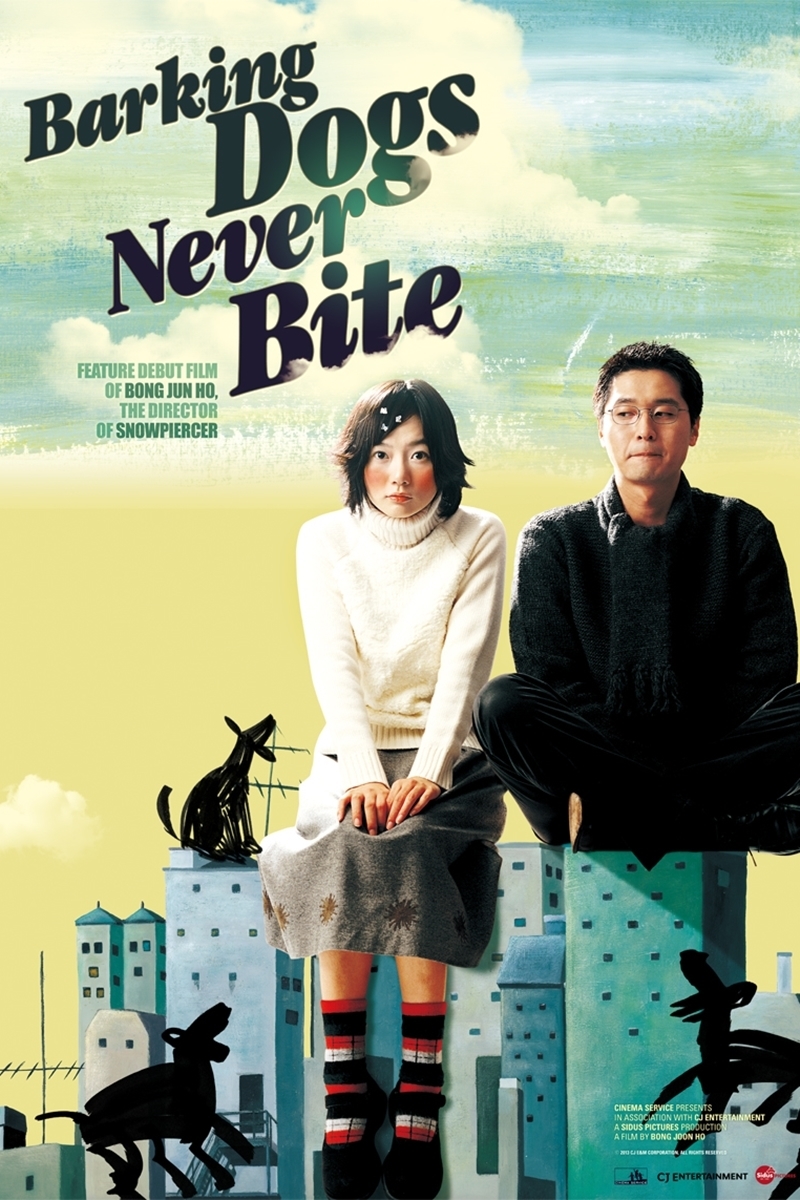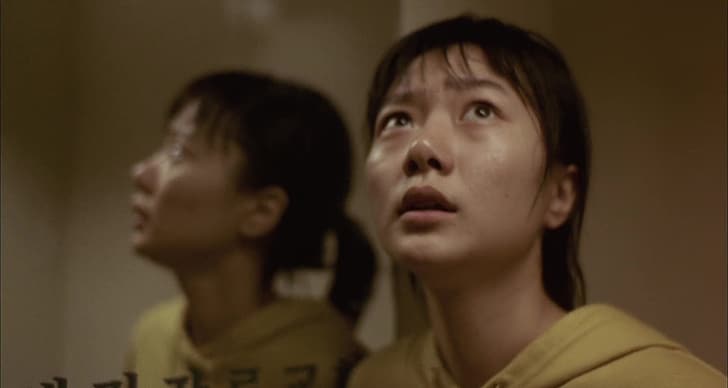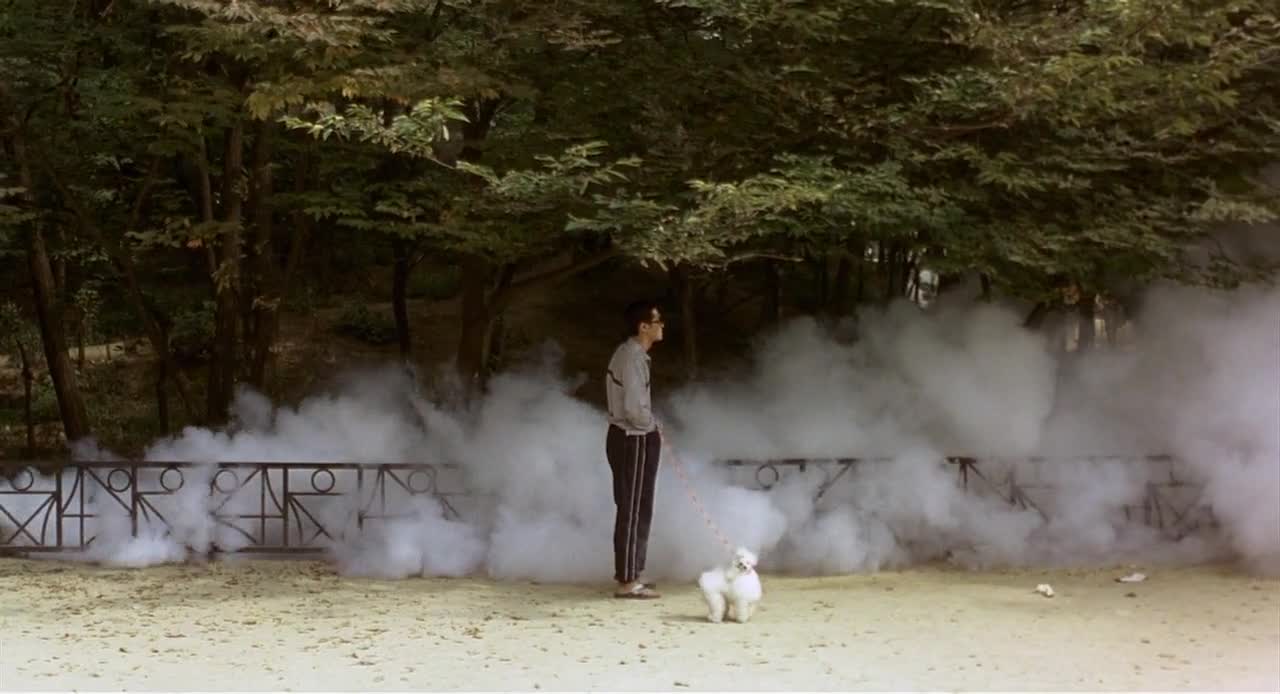

“Dogs eat better than I do.”
Before he was being championed stateside by Quentin Tarantino and winning Oscars, Bong Joon-ho was making offbeat genre films with limited commercial appeal. Actually, he only made one of them before tweaking his style—the bleak comedy Barking Dogs Never Bite, which seems torn between dueling impulses to sardonically explore a taboo subject and pleasurably manipulate the audience with Spielbergian showmanship. These tendencies often conflict, with Bong’s dark humor and caustic social satire overstepping the bounds required of a crowd-pleaser. And so it lives in an in-between space, too dark for the mainstream and yet too derivative for the indie markets; though still indicative of the director’s obvious talents. It’s a memorable, flawed picture, but a nascent exploration of the tragicomic worldview that Bong would develop in a much more palatable and entertaining fashion in his subsequent works.
Many films include a disclaimer about the health and safety of animals used in production, usually in the end credits. But Bong’s debut begins by telling us “no animals were harmed in the making of this film.” This is a necessary evil because, well, it certainly looks as if there were animals harmed in the making of this film. Throughout Barking Dogs Never Bite, pooches are abducted, hung, locked in cabinets, killed, butchered, made into stew, and so on and so forth.
It all begins when Ko Yun-ju (Lee Sung-jae), a tenure-less humanities grad in a strained marriage, arrives at his wits end. He doesn’t want to be a professor, but his course of studies has left him with few viable alternatives. Compounding this issue is the fact that the only way he can get tenure is through bribery. Yun-ju just wants to go for a hike and take a nap in the mountains, but tranquility does not exist in the city, especially not for him. He is pushed over the edge by the incessant, oppressive yelping of a dog somewhere in the bowels of the high rise apartment complex he calls home. When the moment presents itself, he scoops up an unattended Shih Tzu, assuming it is the culprit, and makes several lackadaisical attempts to kill it—nearly dropping it from the high rise roof, beginning to strangle it with its own leash. Unable to bring himself to fully commit the act, he locks the pooch in a cabinet in the abandoned basement beneath the apartments. But he is unaware that several others, namely the janitor (Byun Hee-bong) and a homeless man (Kim Roi-ha), are frequent visitors to the basement and have their own ideas about what to do with unwanted dogs.

Park Hyun-nam (Bae Doona) works as a bookkeeper for the apartment. She’s a kind, timid, simple-minded girl, who dreams of fifteen minutes of her own, idolizing a bank clerk who thwarted a robbery attempt. When a little girl enters the office with a missing dog poster, Hyun-nam springs into action. Through a series of blunders and cover-ups, Yun-ju becomes a serial dog-napper and the facility janitor finds himself enjoying a steady diet of dog meat stew. As Bong runs the gamut of slapstick, slasher flick, rom-com, and absurdist humor, he makes liberal use of a jazzy score from Jo Seong-woo that gives even the most heinous atrocities an affable tone.
There are a number of shortcomings that stem from Bong’s lack of experience. The characters are underdeveloped, and, in the case of Yun-ju, simply too despicable for too much of the story. The central gag, the killing and eating of dogs, in itself a compelling platform for a black comedy (though perhaps more shocking to American audiences than a Korean one), is too often watered down by various side stories that don’t generate anything on their own and merely serve to soften the film’s bleak humor. But even these shortcomings do not detract from the invigorating chase sequence that occurs when Hyun-nam rescues Yun-ju’s kidnapped Toy Poodle from a homeless man (who initially thinks that she is going to help him skewer it from—ahem—back to front). Throughout the film in general, but here especially, Bong’s direction is assured, energetic, and visually engaging. As Hyun-nam leaps into action, time slows as fantasized onlookers cheer and toss confetti on the scene.

There’s probably some kind of “dog eat dog” commentary going on beneath the surface—something to do with the dog-eating janitor’s comment that “dogs eat better than I do” or Yun-ju’s complaint that nobody follows rules while himself planning to bribe the dean—but like the provocative shock horror of puppy slaying, it gets diluted. Uneven, unwieldy, and overlong, Barking Dogs Never Bite is a neat time capsule to explore in light of Bong Joon-ho’s sustained success; a freewheeling experiment that allowed the young filmmaker an opportunity to try on a handful of genres and begin carving out his niche.